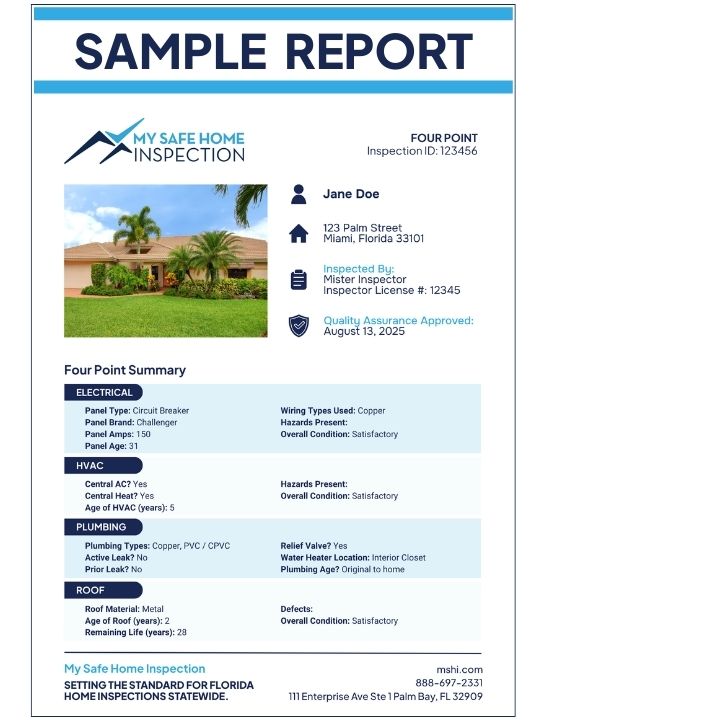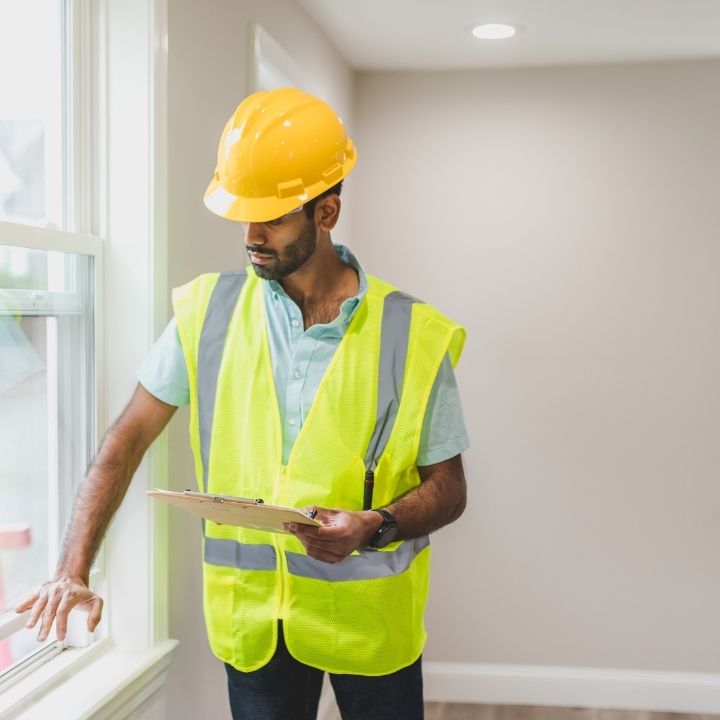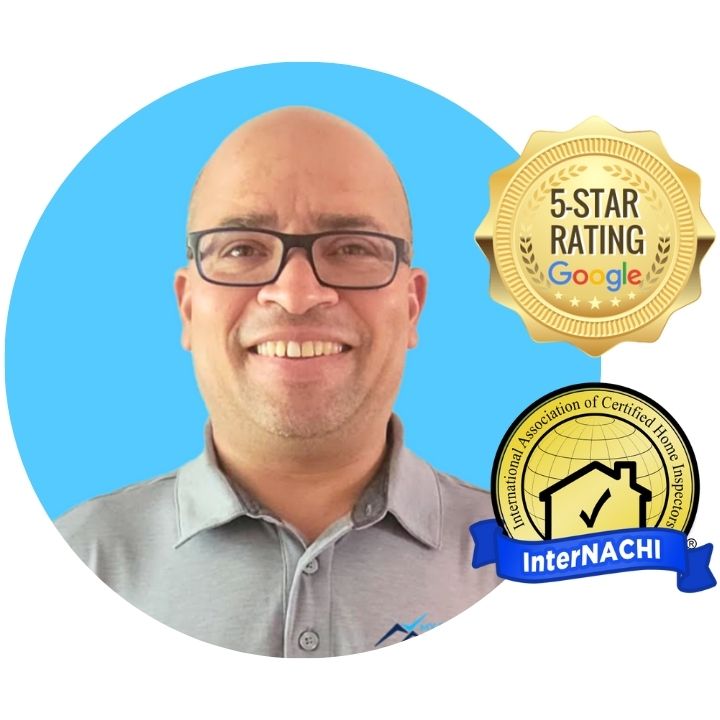Buying or insuring a home is one of the biggest financial commitments you’ll ever make, and one of the most important steps in that process is finding the best home inspection company. Whether you searched for a home inspection near me during a real estate transaction or scheduled a home inspection in Florida to meet insurance requirements, the inspection itself is just the beginning.
The big question many homeowners have is: what happens after the home inspection?
In this guide, we’ll break down the steps that follow, explain how to use your inspection report, and share why understanding the process helps you make better decisions as a buyer, seller, or homeowner.
Why a Home Inspection Matters
A home inspection is a professional evaluation of a property’s condition. Depending on the type of inspection you’re receiving, inspectors assess key systems such as the roof, foundation, plumbing, electrical, and HVAC. They also look for safety hazards and signs of damage that could impact the home’s value or livability.
For buyers, this step provides insight into the home’s condition before closing on a property. For sellers, it can help address issues upfront. And for Florida homeowners, inspections are often required by insurance companies, especially when it comes to specialized reports like wind mitigation or four point inspections.
Step 1: Review the Inspection Report
After your home inspection is complete, the inspector or inspection company will provide a detailed digital report. This document is your roadmap to the property’s condition. It typically includes:
- Photos of all inspected areas, including problem areas.
- Notes on the age and condition of major systems.
- Safety concerns or code violations.
- Permits for elements like your roof.

If you’re buying a home, review this report with your real estate agent to understand which issues are minor and which could affect the sale. If you’re completing a home inspection in Florida for insurance purposes, check that the report addresses the required elements for your policy. All inspection reports at My Safe Home Inspection are insurance approved.
Step 2: Decide on Next Steps
Once you understand the findings, you’ll need to decide what to do with the information.
- Buyers may ask the seller to make repairs, negotiate credits, or lower the price.
- Sellers can decide to fix issues before relisting or adjust their asking price.
- Homeowners using inspections for insurance may need to schedule repairs before coverage is approved.
This step often sets the tone for negotiations or determines whether a policy is issued.
Step 3: Get Repair Estimates
If the inspection uncovers major issues like roof leaks, electrical hazards, or plumbing problems, the next move is to get repair quotes from licensed contractors.
For example:
- A roof inspection may reveal missing shingles or structural issues that need immediate attention.
- Electrical updates may be required to pass insurance requirements.
- Plumbing leaks or outdated piping may impact insurability.
Having actual repair estimates helps you make informed decisions, whether that means negotiating with a seller or budgeting as a homeowner.
Step 4: Negotiate (for Buyers and Sellers)
One of the most common questions we hear is: what happens after a home inspection if problems are found?
In most cases, it’s not the end of the deal, it’s the start of negotiations. Buyers can:
- Request that the seller complete specific repairs.
- Ask for a credit at closing to cover repair costs.
- Renegotiate the purchase price.
Sellers, on the other hand, may choose to address the issues or stand firm and risk losing the buyer. In competitive markets like Florida, both sides need to find a reasonable compromise.
Step 5: Final Walkthrough
If repairs are made, the buyer typically does a final walkthrough before closing. This ensures that agreed-upon repairs were completed and no new issues have developed.
For homeowners outside of a real estate transaction, such as those completing a home inspection in Florida for insurance purposes, this step might mean scheduling a follow-up inspection to confirm that repairs meet insurer standards. At My Safe Home Inspection, we don’t believe you should have to pay full price for a second inspection. That is why if you complete repairs within a specified timeframe, we will perform a reinspection at a discounted price. Give us a call to learn more!

Step 6: Insurance Considerations
In Florida, weather risks mean insurance companies often require specific inspections beyond a general full home inspection. These often include:
- 4 Point Inspection – Focuses on roof, electrical, plumbing, and HVAC.
- Wind Mitigation Inspection – Evaluates how well a home can withstand hurricanes and strong winds.
- Roof Certification Inspection – Verifies the age and condition of a roof.
At My Safe Home Inspection, we make home inspections fast and easy so you can ensure you’re meeting your insurance provider’s requirements with accurate, reliable, and approved reports.
Step 7: Move Forward with Confidence
Once you’ve reviewed the report, handled negotiations, and scheduled necessary repairs, you can move forward with confidence. Buyers close on their new home, sellers move forward with their sale, and homeowners ensure their property is safe and insurable.
FAQs: What Happens After a Home Inspection?
Do I have to fix everything listed in the report?
No. Some issues are minor or cosmetic. Focus on structural, safety, and insurance-related concerns.
Can a home inspection fail?
No. A home inspection isn’t a pass/fail test, it is simply an evaluation. It’s up to buyers, sellers, or homeowners to decide how to act on the findings.
How long after a home inspection do I get the report?
When you work with us, you’ll get your inspection report within 24 hours after the inspection is completed. To save you time and effort, we’ll even send the report to your insurance agent if you’d like.
How does this affect insurance?
If you’re searching for a home inspection near me to meet insurance requirements, be prepared to schedule additional inspections like a wind mitigation or 4 point inspection. Insurance companies rely on these reports to determine eligibility and rates.
Why Choose Our Home Inspectors in Florida
Not all inspectors are the same. Choosing experienced, certified professionals ensures you get accurate results and reliable reports that are accepted by insurers.
We pride ourselves on having the best home inspectors in Florida that offer:
- Fast turnaround times.
- Clear, detailed reports.
- Knowledge of insurance requirements.
- Outstanding customer service backed by over 3,000 5-star reviews

Closing Thoughts
Understanding what happens after a home inspection is just as important as the inspection itself. From reviewing the report to negotiating repairs and satisfying insurance requirements, every step helps protect your current or new home.
Whether you’re buying a home, selling one, or maintaining your property, scheduling a home inspection in Florida gives you the insight you need to move forward confidently. And if you’re searching for a home inspection near me, make sure you choose certified professionals who know how to navigate both real estate and insurance requirements.
With the right inspectors, you’ll not only know the true condition of your home but also have a clear plan for what comes next.
